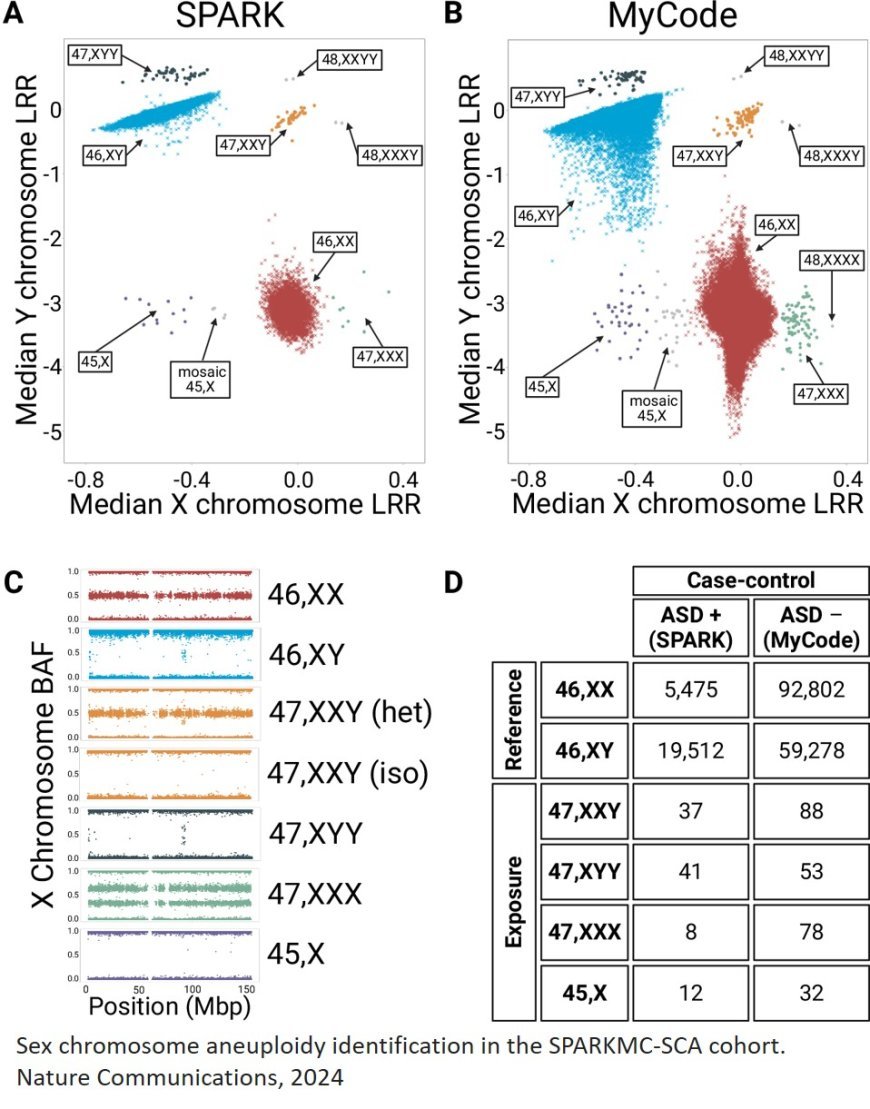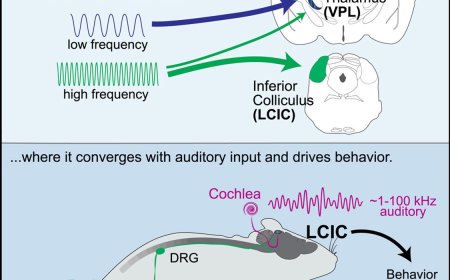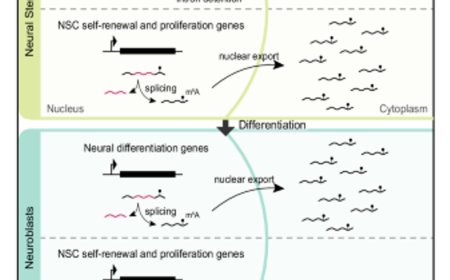Increased autism risk linked to Y chromosome

Increased risk for autism appears to be linked to the Y chromosome, a new study found, offering a new explanation for the greater prevalence of autism in males. The results were published in Nature Communications.
Autism spectrum disorder (ASD) is a neurodevelopmental condition characterized by impaired social interaction and communication, and restricted and repetitive patterns of behavior, interests and activities. ASD is nearly four times more prevalent among males than females, but the reason for this disparity is not well understood.
One common hypothesis involves the difference in sex chromosomes between males and females—typical females have two X chromosomes, while typical males have one X and one Y chromosome.
“A leading theory in the field is that protective factors of the X chromosome lower autism risk in females,” said the senior author.
The research team sought to determine the effects of the X and Y chromosomes on autism risk by examining ASD diagnoses in people with an abnormal number of X or Y chromosomes, a genetic condition known as sex chromosome aneuploidy.
The team analyzed genetic and ASD diagnosis data on 177,416 patients. They found that individuals with an additional X chromosome had no change in ASD risk, but that those with an additional Y chromosome were twice as likely to have an ASD diagnosis. This suggests a risk factor associated with the Y chromosome instead of a protective factor associated with the X chromosome.
“While these may seem like two sides of the same coin, our results encourage us to look for autism risk factors on the Y chromosome instead of limiting our search to protective factors on the X chromosome,” another author said. “However, further research is needed to identify the specific risk factor associated with the Y chromosome.”
This analysis also confirms prior work by showing that the loss of an X or Y chromosome, known as Turner syndrome, is associated with a large increase in ASD risk. Further research is needed to determine whether the ASD risk factors associated with sex chromosome aneuploidy explains the sex difference in ASD prevalence.












